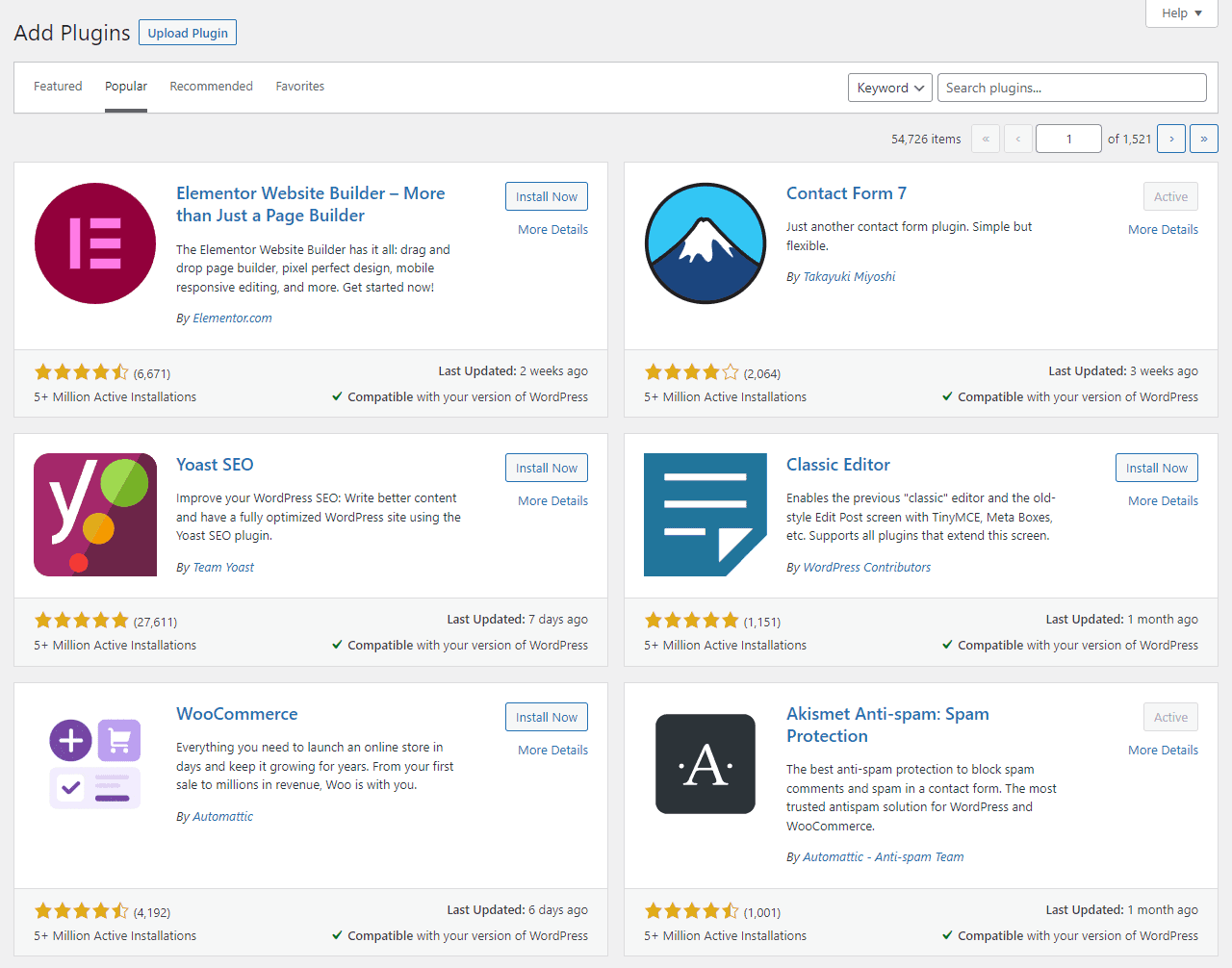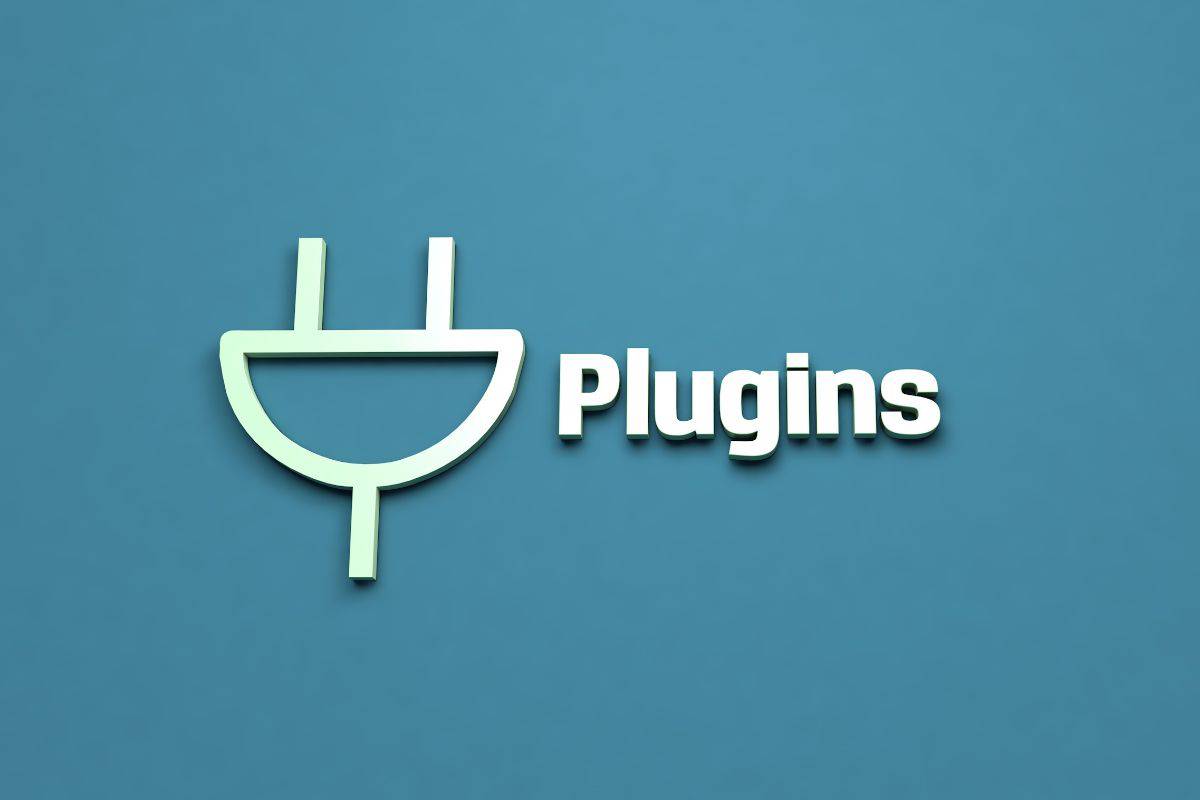WordPress is a super helpful tool if you’re thinking about building your own website. You are probably wondering, “how many WordPress plugins should I use?”
Not to worry, we’ll be letting you know all there is to know about WordPress plugins, especially the misconceptions about how these plugins work and how they may affect your website.
Read on to learn more about WordPress plugins!
Table of Contents
What Are Plugins On WordPress, And How Do They Work?
Whether you’re a blogger, content creator, business owner, or simply want your own personal website, WordPress is definitely worth getting. No wonder WordPress powers over 37% of all sites on the Internet. One of the reasons for wide adoption can be attributed to plugins.
Before we discuss how many WordPress plugins you should be using and how they can affect your website, it’s useful to know what they actually are and how they work.
It helps to think of WordPress plugins as apps for your website. They can help to add different features to your website, such as making an online store or adding contact forms, there’s much more they can do, but that’s just a few examples.
There are over 60,000 free plugins available on the WordPress.org plugin directory, and even more are available on third party websites like Github. You can either use your Add New link to install plugins directly from the WP repository or simply upload a plugin in zip file form using the Upload Plugin button.
Popular plugins with over 5+ million active installations include:
- Elementor
- Contact Form 7
- Yoast SEO
- WooCommerce
- WPForms
- and more!

The plugins have elevated WordPress from allowing you to create a simple blog to becoming a powerful content management system and application framework, so now you can create any type of website you want. Wanting a private membership site? No problem.
So how do they work? Well, WordPress was written in a way that allows developers to add their own code to it.
The WordPress API features a wide range of hooks and filters that allow users to develop or modify existing WordPress functionality.
You can also store data in the WordPress database; plugins can help this by utilizing WordPress content types, custom fields, and taxonomies, which lets users store any type of content, not just blogs and pages.
To find the plugins you have installed, they’ll be in your WordPress database. Here you can activate or deactivate them at any time.
Every time you visit WordPress, it will connect automatically to the database, then load the core software, and through this, it will load any active plugins. This is processed on your server and then sent to the user’s browser.
Why Are Plugins Essential For WordPress?

It’s well known within the WordPress community that plugins basically make WordPress as good as it is. Obviously, it provides a strong publishing framework, but it’s mainly thanks to the plugins that WordPress is considered the most popular website builder in the world.
As we mentioned, tens of thousands of free plugins are available directly through WordPress and even more through premium WordPress plugins made by third party developers.
Plugins can do several things for your website. For example, they can help to improve your SEO, manage users, increase security, and more.
You can also create your own online store, build a business directory, create a job board and even create a wiki website.
Suffice it to say that without plugins, you’d have difficulty growing your business.
How Can Plugins Affect Website Speed & Performance
It’s hard to say how plugins can affect your website due to the sheer amount of different plugins that each do different things.
For example, some plugins will mainly affect your website’s front end, such as page builders, contact forms, etc.
Then some plugins are mainly made to perform tasks with the back-end or admin area, for example, WordPress backup plugins, editorial plugins, and various background processes.
The impact a WordPress plugin will have on speed and performance depends upon where the plugin is being loaded. Plugins that are only being loaded when you are doing specific tasks in the admin area of WordPress probably won’t impact your website’s performance.
But plugins that are mainly centered around the front end will likely impact your website’s performance much more.
Also, plugins that check for broken links or 404 monitoring can significantly slow down your website’s performance.
So why do plugins affect the website’s performance? Here are some reasons why:
- Background Processes & Database Writes – As we mentioned in the last point, plugins that monitor 404 errors, broken links, and recording analytics can take up a lot of server resources.
- Making additional HTTP requests – Front-end plugins require custom styling or scripts to work properly. Due to this, they may add extra JS or CSS files, which can slow down your page as loading these files requires making more HTTP requests.
- Additional database queries – Plugins that are designed to display popular or related posts can increase your database queries. This can affect the performance of your website.
How Do WordPress Plugins Affect Security?
Plugins have gotten a bit of a bad reputation recently, and many new users worry about the security or reliability surrounding the plugins.
Many users will worry that having too many plugins can make their site much more vulnerable to cyber attacks.
While poorly coded WordPress plugins can be exploited by hackers, the same can be said about most existing software.
We get that this may not be entirely comforting. Still, the fact is that the plugins being open source means many people are using the software, which makes a vulnerability able to be discovered faster and thus fixed promptly.
Regularly install the updates that come through in your Updates page in your WP Admin area. Alternatively, you can turn on Auto-update by clicking the Enable auto-updates link on your Plugin page in the WP Admin area.
If you’re still on the fence, you can use WordPress security plugins that will scan thousands of websites and detect any vulnerable plugins or security issues.
You can improve your website’s overall security by adding multiple layers of security before any vulnerability can be discovered by a hacker.
Besides that, be sure to deactivate and delete any unused plugins so they can’t be exploited.
How Many Plugins Should I Use?
This is a time old question with no real answer. You should use as many plugins as you need to run your website and grow your business.
But of course, we know this isn’t the answer you’re looking for.
It’s typical for business websites to run, on average, 20-30 plugins. We like to keep this number below 15 where possible to ensure a nice balance of speed and security.
But if you’re using WordPress to its full potential, the plugin count can go into 50+ count territory. If you can help it, keep the plugin count as minimal as possible.
Don’t stress too much about the quantity of the plugins. It’s more about the quality. You can have 30 plugins, and your website can run absolutely fine. But download a poor-quality plugin, which can drag your website’s entire performance down. The key here is bloat versus extension.
Sometimes, you can have a collection of plugins that don’t play nicely together. So your plugin stack actually matters. If you find a plugin conflict, you can disable all plugins and enable them one by one to find the offender. To speed this up, you can batch test activated plugins. For example, you can disable half and keep half enabled.
About Premium Plugins
Using high quality plugins that follow WordPress’ coding standards and keeping the number of plugins you have activated will get you far. However, you may have seen premium plugins. Some plugins have a free version in the WP Repository and a pro version on their site, while other premium options are only available on the developer’s website.
Just because a plugin has a pro version doesn’t mean you need to upgrade. You should weigh the business need for the upgrade and view other potential options before shelling out the cash.
Premium plugins with a cost don’t necessarily mean the plugin is high quality. You should also look for reviews and how and when devs respond to feedback.
Final Thoughts
And there you have it! Hopefully, now you know more about WordPress plugins and how they can boost your website and its performance.
Try to keep your active plugin count around 15 or less if you can, and deactivate and uninstall any unused plugins. Other than that, you really don’t need to obsess over the plugin count on your site.
Most plugins won’t affect the speed and performance of your website as long as they’re non-intensive and high-quality.
The quality of the plugins and what they do matter more than the number of plugins you have.

